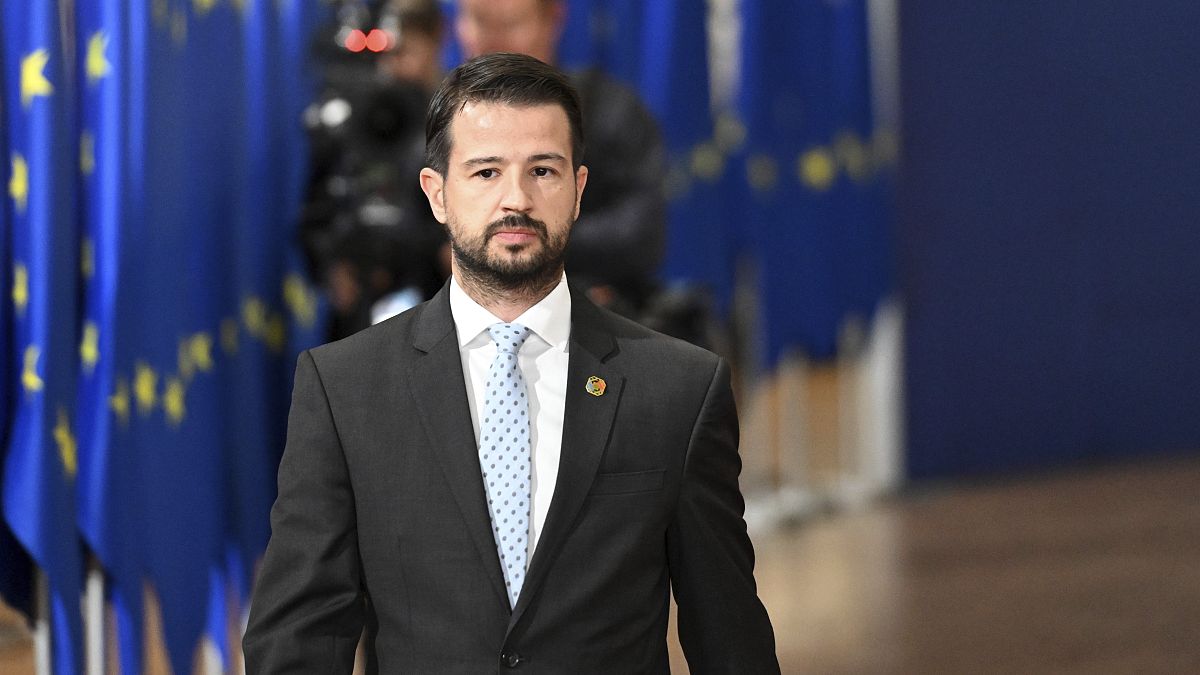Euroviews. Montenegro pursues values-driven EU enlargement process

It is encouraging that one of the seven priorities of the new European Commission explicitly focuses on enlargement, envisioning a Europe that is not only larger but also stronger on the world stage.
From the perspective of candidate countries, we are encouraged by the renewed momentum in Brussels and across the EU. This momentum has sparked a genuine appetite for new member states, and I find this inspiring. When I was elected President of Montenegro last year, I set an ambitious yet achievable goal: Montenegro, as a frontrunner among the candidate countries, to become the 28th EU member state by 2028.
Montenegro is the country that already holds NATO membership, has been in line with the EU’s common foreign and security policy for the last decade, has the euro as a currency (though unilaterally), and what I like to stress: has a strong civil sector and free, independent media. The country naturally has challenges and political turbulence, as any other democratic, pluralistic society has, but these are part of a democratisation process, rather than the consequence of its failure.
The reforms in Montenegro have been strongly driven by the promise of EU membership and the legitimacy that political parties derive from it. In fact, most, if not all, political parties in Montenegro are publicly committed to EU integration. Although one may question the sincerity of these commitments and whether they are merely declarative or truly substantive, nevertheless, considering that more than 80 percent of the population supports EU membership, it is clear why EU accession is such an important source of political legitimacy in Montenegrin politics.
However, the transformative power of the EU pathway is not unique to Montenegro; we have seen similar effects in other countries—Croatia (our only approximate neighbour that is already a member), Slovenia, another country with whom we shared a joint history for some time, as well as many other countries throughout Central and Eastern Europe. During my previous career as an economist at the EBRD, I observed first-hand the EU’s transformative power in these countries, a power unmatched by the influence of any other external actors.
In considering how enlargement might unfold, there are four main scenarios, each with lasting consequences for both the EU and the candidate countries:
Scenario One: The candidate country fails to utilize the EU accession process for democratic or institutional progress, and as a result, the EU does not admit it. The outcome is a clear lose-lose, leaving the EU with incomplete democracies at its borders and the candidate country without the benefits of EU membership, with de-democratisation forces taking the lead forward. It goes without saying that this scenario is also welcomed by the EU’s adversaries, who can then fully exert their influence.
Scenario Two: The candidate country uses the accession process productively—building institutions and advancing democratic standards—yet is still not accepted by the EU. History shows that this scenario often leads to regression and the reversal of democratic gains. Here, too, both sides ultimately lose in the long run. Yet some may be more capable of continuing along a positive path and building a stable democracy rooted in the rule of law. Unfortunately, history teaches us otherwise.
Scenario Three: The candidate country shows insufficient democratic progress, yet the EU admits it anyway based solely on geopolitical considerations. Some advocate for this approach, regardless of the state of reforms. While this might appear to satisfy both the EU’s enlargement drive and the candidate countries’ ambitions, especially for bigger sources of funding for development, in reality, it is not sustainable. Over the long term, both the EU and the country suffer, as core values like the rule of law and effective governance are sidelined. Moreover, this scenario could also benefit adversaries, providing them with opportunities to exert influence within the EU.
Scenario Four (The Win-Win Scenario): Both parties do their part. The candidate country leverages the accession process to achieve genuine democratic progress and build robust institutions, while also depoliticizing its public administration, enabling a free media environment, and focusing on sustainable economic development, and then is welcomed into the EU. This is the ülkü outcome—one that ensures shared growth, resilience, and stability. It is this scenario that I believe we must all strive to achieve.
This is precisely what I envision for Montenegro. We have to use the EU accession process—this powerful external anchor—to drive reforms and fortify our democracy, ensuring that we join the EU as a fully prepared and committed member state. It is therefore essential to make the most of the accession process now.
For this aim, enlargement should not only be about financial gain—as there are countless küresel avenues for attracting investment with perhaps fewer conditions required. What we should value most about the EU is the set of principles it upholds. We seek to build a society anchored in the rule of law, good governance, and equal opportunities. These core values make EU membership a goal worth pursuing.
As President of Montenegro, I am committed to guiding my country through this critical phase of our European journey. I hope that both the EU and candidate countries will work together to achieve a truly win-win scenario—one that not only enhances the Union’s strength and unity but also helps candidates become responsible, democratic members of the European family.
I am deeply convinced that Montenegro’s accession to the EU is a political milestone greater than itself; it would show that the process is alive, that reforms truly hisse off, that new political culture pays off, and could become a success story and an example for all other candidate countries, if we all commit to the genuine ıslahat agenda ahead.